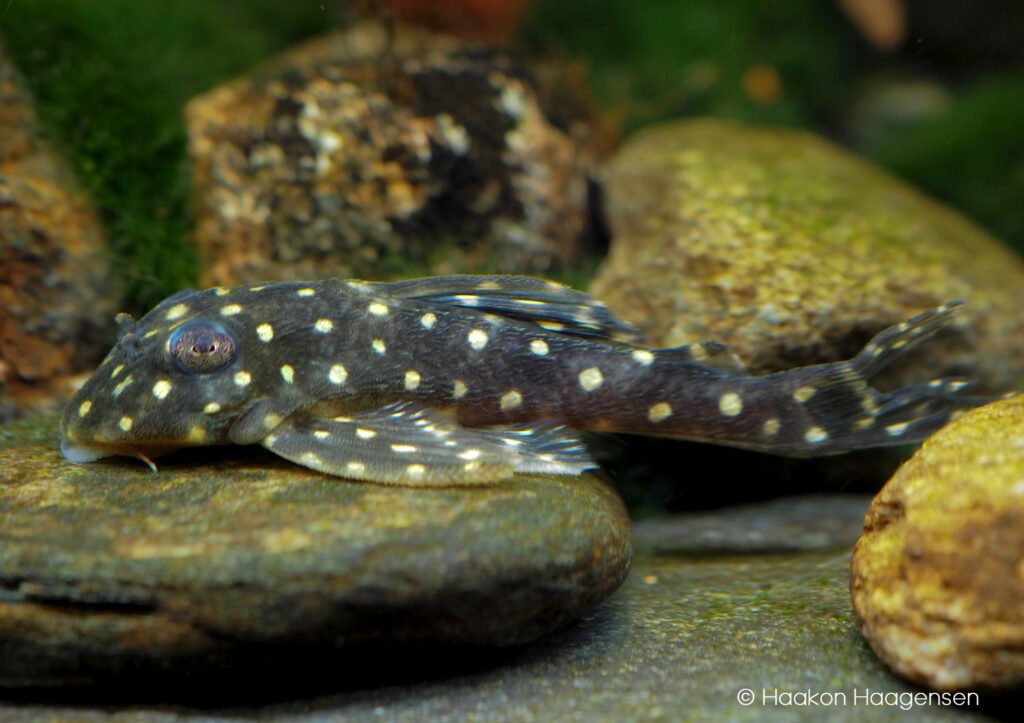
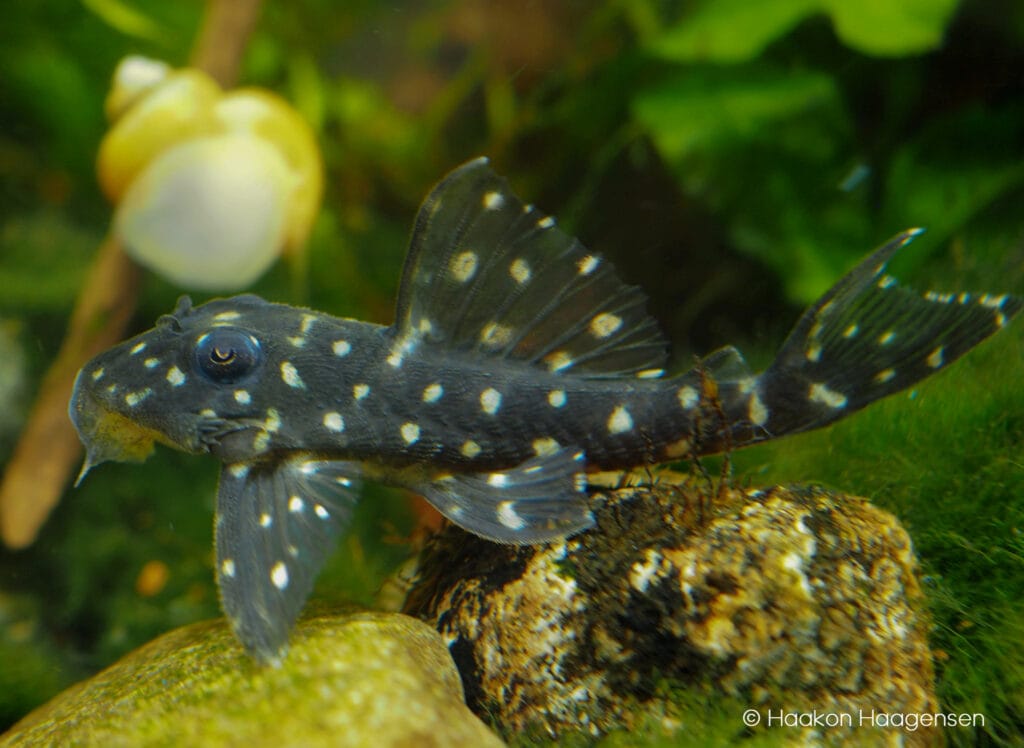
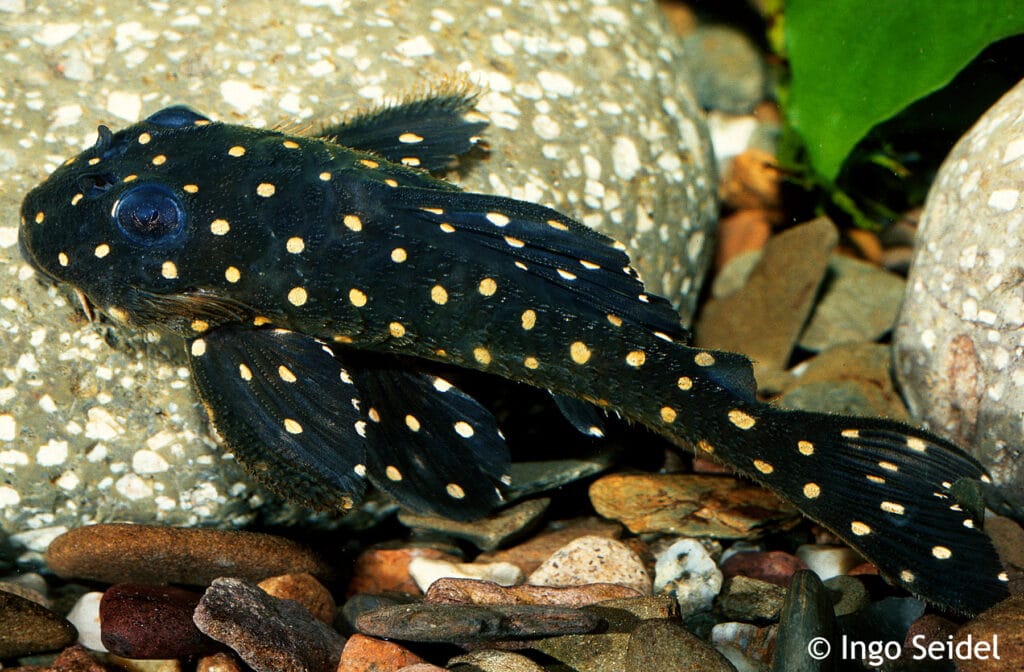
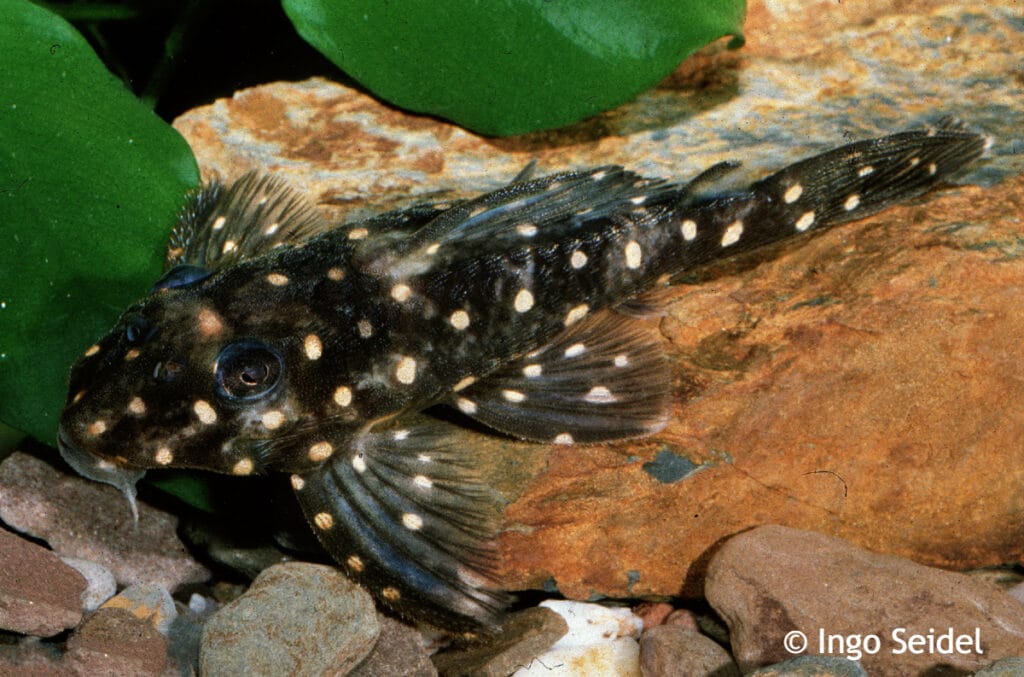
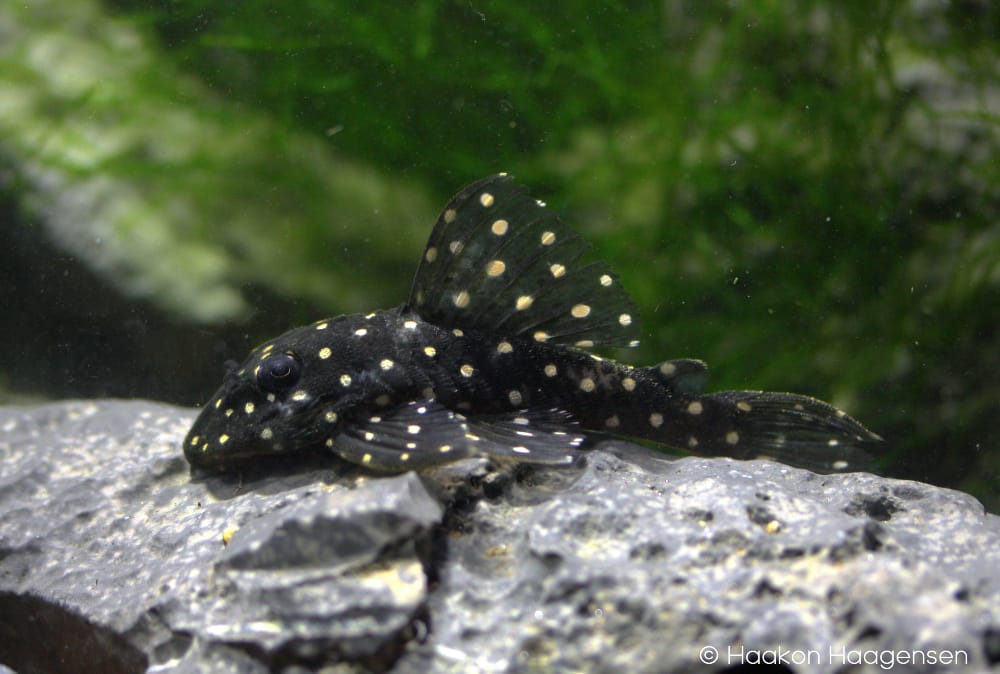
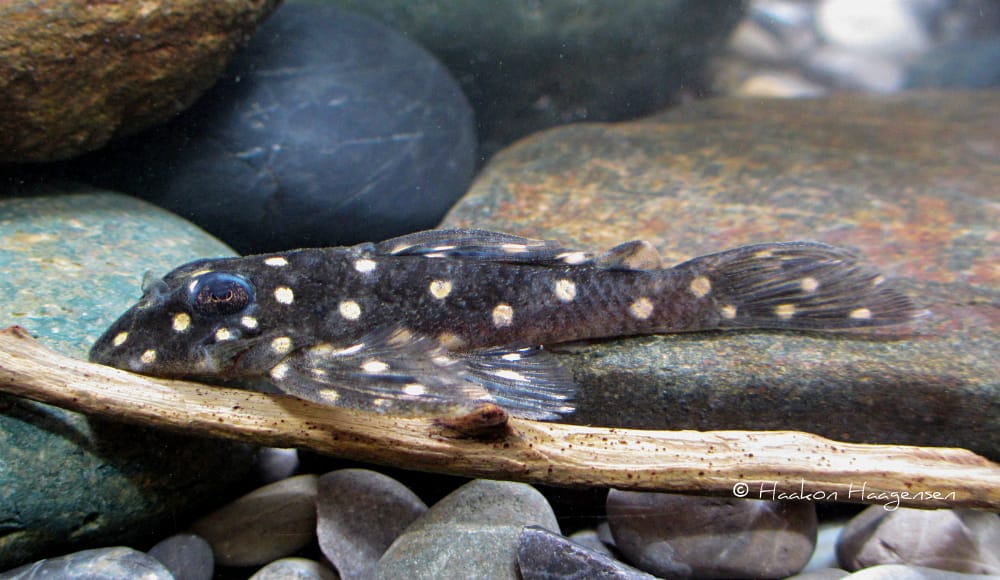
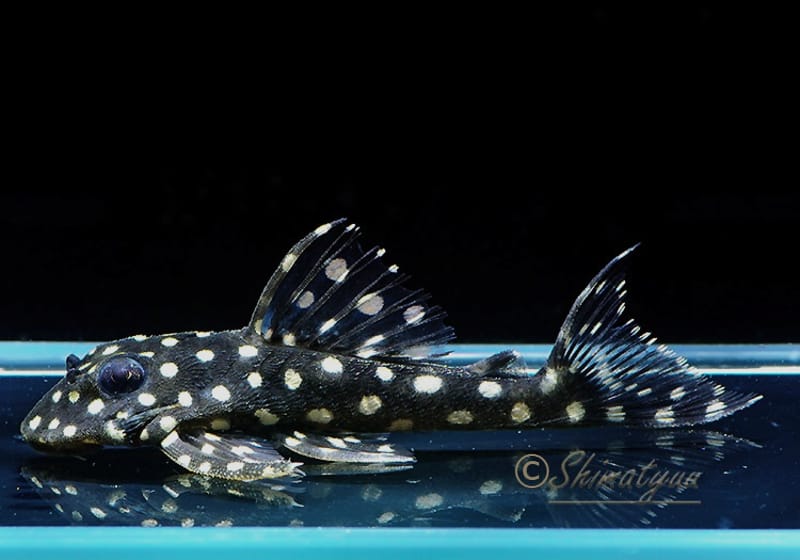
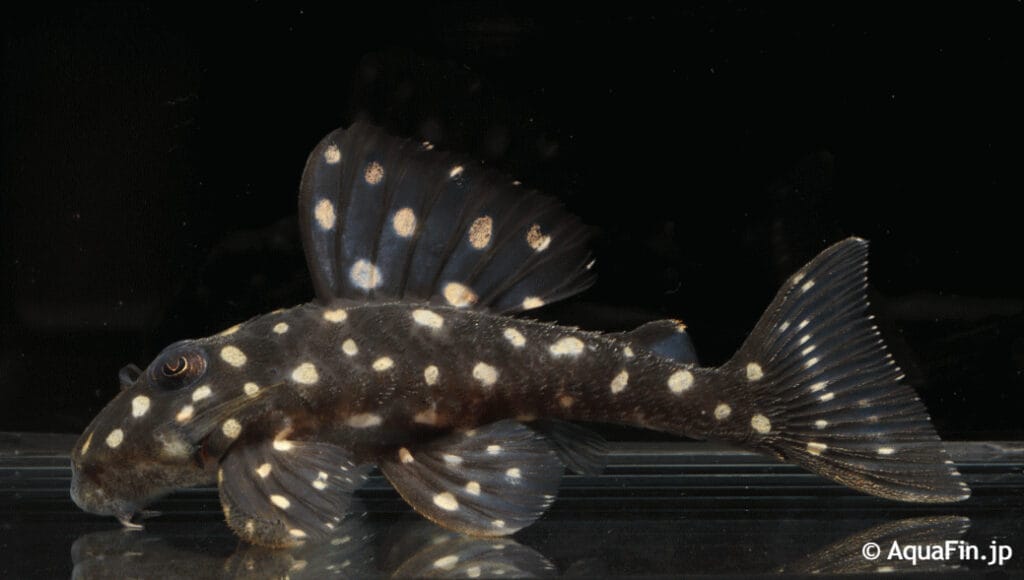
Among the most common species of Hypancistrus in the hobby is L201 from Rio Orinoco. It’s a small species, with a black body covered in numerous small white spots. It’s easily confused with the larger H.contradens, and it’s often exported together with that species and H.lunaorum (L339). Beware of crossbreeds!
Facts:
Name: Hypancistrus sp.
Trade names: L201
Origin: Rio Orinoco, Colombia/Venezuela
Maximum size: 10 cm / 4”
Compared to the similar H.contradens, L201 is smaller, has a lower body and a shorter head. Usually the spots are smaller than what is common in H.contradens, but the spots in L201 can vary somewhat in size and numbers. The similar L339, H.lunaorum, can be told apart from L201 by the same traits as with H.contradens, but H.lunaorum has very small spots, and often just a few of them (sometimes none at all). There is an even smaller Hypancistrus form from Rio Ventuari, L471, which is also easy to confuse with L201. This form was previously erroneously traded as L280 (which actually belongs to Micracanthus / Hypancistrus vandragti), and is said to be full grown at about 6-8 cm.
L201 needs an aquarium set up consisting of lots of hiding places in the form of rocks, wood and of course specially made caves that suit their measurements. In these the males will eventually guard their offspring. They prefer water that is warm (27-30 C), soft and slightly acidic. Most of all it should be well oxygenated and clean, so a good filtration system and frequent water changes are essential. It’s a rather small and timid species that should not be exposed to too much competition over food and shelter. Among themselves they are peaceful, although males may quarrel for caves and females can sometimes be badly injured or even killed during the breeding-trapping in the male’s cave.
More info:
